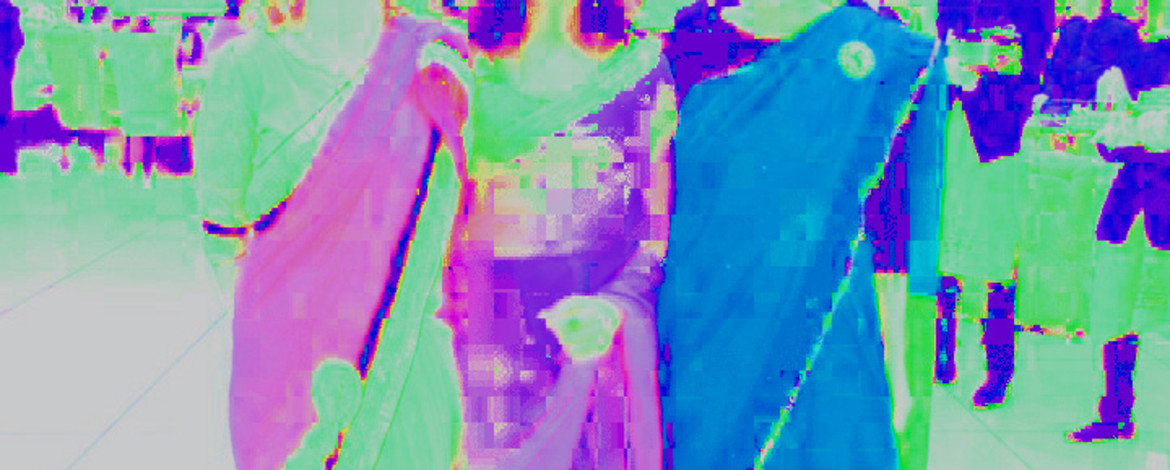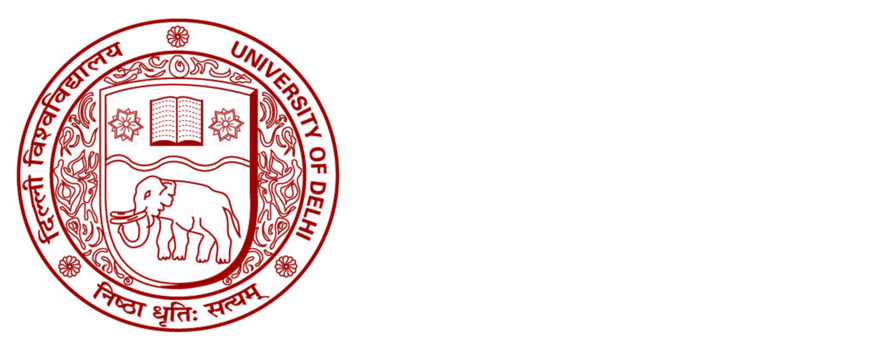Winter School Delhi, India
Doing Cosmopolitanisms: Dynamics of Theory and Practice


John Stanmmeyer, Signal, 2013
Sikho Siyotula, 2017
Sikho Siyotula, 2017
* Audio recordings of panels and keynotes are now available. Download your playlist here. *
Description
*The Delhi Winter School took place from December 6-9th 2017 in Delhi, India.
The RTG Minor Cosmopolitanisms brings together all its members, as well as inviting fellow Ph.D candidates and scholars in India and the South Asian region, in order to explore practices of cosmopolitanism in a winter school entitled: Doing Cosmopolitanisms: Dynamics of Theory and Practice. The winter school forms part of a larger project, Minor Cosmopolitanisms, that wishes to build new ways of studying and understanding the cosmopolitan project against and beyond its Eurocentric legacies, prompted by a complexity of challenges faced in a globalizing world. The winter school is an extension of ongoing joint supervision, research and teaching between the University of Potsdam (Germany) and its partner universities in Berlin and around the world – Australia, Canada, India, South Africa and the United States of America – in which we hope to create a learning environment of multi-directional exchange.
In order to transcend the division of the cosmopolitan, into either universal (Eurocentric) normative ideal or established reality deemed descriptively assessable, our winter school places emphasis on “doing cosmopolitanisms.” Rather than merely focusing on the socioeconomic dynamics of globalization and its representations, minor cosmopolitanisms focus on practices of being, thinking, feeling and creating in a globalizing world. Among the central questions we ask are: How do we overcome colonial epistemologies? How do we draw applicable knowledge from embodied and singular practices?
It is in this light that the first winter school of the RTG Minor Cosmopolitanisms is located physically outside the Euro-American context that too often appears as the centre of cosmopolitanism. Our hope is to learn both from the specificities of local practices and the intellectual questions that the theme of minor cosmopolitanisms opens up across our various fields of scholarship. To this end, we aim to explore where and how academic concerns are manifested through various forms of practice. We turn to scholars, policymakers, practitioners and activists working at the intersections of academia and politics, to envision what “doing” minor cosmopolitanisms might look like. We are (also) interested in critical, artistic as well as everyday practices that performatively bring both historical and current cosmopolitanisms into being by virtue of their worldmaking capacities.
The winter school wishes to engage with practice as theory and theory as practice. We welcome discussions including but not limited:
- contesting colonial epistemologies/ontologies
- dissident democratic formations and ‘post’-democracy
- cosmopolitanizing bodies
- non-Western readings of the West
- access to knowledge and piracy
- subaltern and queer femininities
- caste/race/religious/gender/class epistemologies and violence
- eco-cosmopolitan futures
- (minor) convivial cultures and practices
- critiques of (minor) cosmopolitanism(s)
Winter School Booklet and Program
Click here to download the official booklet and program for the winter school.
Call for Applications
Click here for the official call for applications.
*Note: The call for applications has been closed.
Faculty
Firdous Azim (BRAC University)
Professor Azim is a Professor of English and is chair of the Department of English and Humanities at BRAC University. She is also a member of Naripokkho, a woman’s activist group in Bangladesh. She obtained her Ph.D. from the University of Sussex, UK in 1989 and was awarded a fellowship by the University as one of its fifty most distinguished alumni and academics in 2012.
She has published widely both in the field of post-colonialism and literature, as well as on feminist issues. Her books include The Colonial Rise of the Novel (Routledge, 1993) and Infinite Variety: Women in Society and Literature (University Press Limited, Dhaka, 1996). She is a contributing editor for Feminist Review, for which she has edited a special issue entitled South Asian Feminisms: Negotiating New Terrains. (March 2009). She has edited a book entitled Complex Terrains: Islam, Culture and Women in Asia (Routledge, March 2013) and co-edited several books including Infinite Variety: Women in Society and Literature (UPL, 1994) and Other Englishes: Essays on Commonwealth Writing (UPL, 1991). She is a member of the editorial board of Journal of Inter-Asia Cultural Studies as well as a member of the Board of the Inter-Asia Cultural Studies Society. Her current work is based on research and writing around the cultural history of women in Bangladesh.
Sundar Sarukkai (National Institute of Advanced Sciences)
Professor Sarukkai teaches Philosophy at the National Institute of Advanced Sciences in Bengaluru, India. His research interests are in histories of, conceptions of, and philosophies surrounding science in South Asia. and He has collaborated on such projects such as "Cosmopolitanism and the Local in Science and Nature, East and West," and was on the advisory board of the "Egalitarianism Project." He was the recipient of the PHISPC Fellowship from September 2003 to November 2004 and was a Homi K. Bhabha fellow from June 1997 - May 1999.
Rajni Palriwala (University of Delhi)
Rajni Palriwala, M.A. (J.N.U.), M.Phil., Ph.D. (Delhi) is Professor of Sociology. Her research interests include gender, kinship and marriage, care, citizenship, and the state,feminist theory and politics, agrarian and development studies and comparative sociology. She has authored Changing Kinship, Family and Gender Relations in South Asia: Processes, Trends and Issues (1994) and co-authored Care, Culture and Citizenship: Revisiting the Politics of the Dutch Welfare State (with C, I. Risseeuw and K. Ganesh, 2005). She has co-edited Marriage, Migration, and Gender (with P. Uberoi, 2008), Shifting Circles of Support: Contextualising Kinship and Gender Relations in South Asia and Sub-Saharan Africa (with C. I. Risseeuw, 1996), and Structures and Strategies: Women, Work and Family in Asia (with L. Dube, 1990).
Ira Raja (University of Delhi)
Ira Raja, PhD (La Trobe 2003), M.Phil (Delhi 1996), MA (Delhi 1992), BA (Delhi 1990), is an assistant professor at the University of Delhi's English department. Her areas of interest and research include Postcolonial Literature and Theory, Cosmopolitanism, Globalisation Studies, Twentieth Century Novel and Poetry, Dalit literature, Indian Literature in English Translation, Literary Gerontology, and Urban Cultures.
Dirk Wiemann (University of Potsdam)
Satish Poduval (EFL University)
Satish Poduval is a professor and head of the Cultural Studies department at the English and Foreign Languages University (EFL) in Hyderabad, India. His research interests include Literary and Cultural Theory, Media and Film Studies and Contemporary Kerala.
Shaswati Mazumdar (University of Delhi)
Shaswati Mazumdar is a professor and head of the Germanic and Romance Studies department at the University of Delhi. From 1972-77 she studied German language and literature at Jawaharlal Nehru University and also did her Ph.D there in 1994 on Lion Feuchtwanger, Berthold Brecht, and the handling of Indian colonial history. Her main research areas are India in German-language literature, Cultural transformation processes in the German-speaking world and Europe, 20th century German literature, and the reception of the Indian uprising of 1857 in the German-speaking world and Europe.
Vibha Maurya (University of Delhi)
Vibha Maurya is a professor in the department of Germanic and Romance Studies at the University of Delhi. She completed her M.A. at the Maurice Thorez Moscow State Pedagogical Institute of Foreign Languages, Moscow, USSR and her Ph.D at University of Havana, Cuba. Her research interests include Latin American and Spanish literature, literary theory, translation – theory and practice and the Spanish language. She has translated numerous novels, stories and essays from Spanish to Hindi.
Musad Abdul Salam (University of Delhi)
Musad Abdul Salam is a professor in the English Studies department at the University of Delhi.
Janaki Abraham (University of Delhi)
Janaki Abraham, M.A, M.Phil, Ph.D. (Delhi) is Associate professor in Sociology at the University of Delhi. Her research interests include the study of kinship, gender and caste, visual anthropology and gender and space, particularly the study of towns. She is finalising her manuscript entitled: Gender, Caste and Matrilineal Kinship: Shifting boundaries in twentieth century Kerala based on her doctoral research. An exhibition entitled: Exploring the Visual Cultures of North Kerala: Photographs, albums and videos in everyday life showed at the Arts and Aesthetics gallery in JNU, New Delhi and was based on her postdoctoral research.
Gautam Bhatia
Gautam Bhatia is a lawyer currently practicing law in Delhi, and teaching visiting courses at the National University of Juridical Sciences. He also runs the Indian Constitutional Law and Philosophy Blog and also occasionally writes expository opinion pieces for The Outlook and Scroll.
Sharmila Samant
Sharmila Samant is an artist. She studied at the Sir J.J. School of Arts, Mumbai, India 1989 and did her residency at the Rijksakademie van Beeldende Kunsten, Amsterdam, The Netherlands 1998-99 and the Gasworks Studios 2000. She Has participated in a number of national and international shows including ‘Century City’ – Art and Culture in the Modern Metropolis, The Tate Modern, London, UK, curated by Geeta Kapur 2001. Liverpool Biennale, Liverpool, UK 2002, ‘Sub terrain’, artworks in the city fold, Body, just to name a few. As the co-Founder, Member of Open Circle, an artists’ initiative for the organization and development of interactive platforms for artists in Mumbai from 1998-2007. She has conceptualized and co-ordinated many collaborative works.
Rahul Roy
Rahul Roy film actor, producer, and former model known for his works in Bollywood, and Television.Roy began his acting career with the 1990 blockbuster Aashiqui, as the lead actor. He then appeared opposite Karishma Kapoor in Sudhakar Bokade's romantic film Sapne Sajan Ke (1992). Roy has been honoured with life membership of the International Film And Television Club of Asian Academy of Film & Television.
Keval Arora
Keval Arora is an actor, staff adviser to the dramatics society at Kirori Mal College, part of the University of Delhi. He appeared in the 2017 film Omerta, which screened at the Toronto International Film Festival, the Mumbai Film Festival, Florence Film Festival, Hong Kong International Film Festival and the Busan International Film Festival. Omerta is scheduled to be released in May 2018.
Kumkum Sangari (University of Wisconsin Milwaukee)
Kumkum Sangari is the William F. Vilas Research Professor of English and the Humanities at the University of Wisconsin- Milwaukee. She has been a Professorial Fellow at the Centre for Contemporary Studies, Nehru Memorial Museum and Library, New Delhi; a Visiting Fellow at Yale University, Delhi University and Jadavpur University; and a Visiting Professor at the University of Chicago, Central European University, University of London (SOAS), University of Erfurt and Ambedkar University. She has published extensively on British, American and Indian literature, the gendering of South Asian medieval devotional traditions, nationalist figures such as M.K.Gandhi, Bombay cinema, televisual memory, feminist art practice, and several contemporary gender issues such as personal law, widow immolation, domestic labour, the beauty industry, son selection, commercial surrogacy, and communal violence. She is the author of Solid Liquid: A Transnational Reproductive Formation (2015) and Politics of the Possible: Essays on Gender, History, Narratives, Colonial English (1999). She has co-edited several books including Recasting Women and, most recently, has edited Arc Silt Dive: The Works of Sheba Chhachhi (2016) and Trace Retrace: Paintings, Nilima Sheikh (2013).
Mallika Shakya
I am an economic anthropologist with a PhD from LSE, and postdoctorals from Oxford and Pretoria. I work on industrialisation, socio-economic embeddedness and labour. I examined the rise and fall of ready-made garment industry in Nepal between 2001 and 2011, which exposed me to the turbulent national politics rooted in the Maoist movement in Nepal during that time. Later I resided and taught in South Africa for two years and developed a comparative perspective between the trade union movements in Nepal and South Africa. My research examines the nature of overlap between economy and society, including the role of grassroots-level social movements in envisioning a national trajectory on development and prosperity. I have been part of Nepal’s civil society movement on democratisation, especially those concentrating on women’s rights and social equality. Lately I have begun to take interest in the public meaning(s) of South Asia, including issues of nationalism and borders, and its interface with the Global South. Prior to joining academia, I worked for the World Bank and UNICEF for about fourteen years, where I advised governments in Asia, Africa and Eastern Europe on their economic and social policies and programmes.
Udaya Kumar (Jawaharlal Nehru University)
Udaya Kumar is Professor at the Centre for English Studies, Jawaharlal Nehru University. He has been Professor of English at the University of Delhi and of Cultural Studies at the Centre for Studies in Social Sciences, Calcutta. He was a Leverhulme Visiting Professor at Newcastle University and Fellow at the Nehru Memorial Museum and Library and at the Indian Institute of Advanced Study. His publications include The Joycean Labyrinth: Repetition, Time and Tradition in ‘Ulysses’ (Oxford: Clarendon Press, 1991) and papers on contemporary literary and cultural theory and Indian literature.
Aniket Jaaware (Shiv Nadar University)
Aniket Jaaware is a professor in the Department of English, School of Humanities and Social Sciences School of Humanities and Social Sciences in Shiv Nadar University, India. He is a widely-published scholar with research interests on Literary Theory, Translation Studies, F & SF, 19th Century Maharashtra, and elements of European Philosophy. Some of his books include, Touch: A Study of Caste (under revision for Fordham University Press, New York), Kale-Pandhare Asphut Lekh, A Collection Critical Essays in Marathi (Pune: Hermes Prakashan, 2011) and Simplifications: An Introduction to Structuralism and Post-structuralism (New Delhi, Orient BlackSwan Impression, 2009 (re-print) besides articles in books and many journals. Among other national and international recognitions, he has been a Tagore Fellow, Indian Institute of Advanced Studies, 2014 and ICCR India Rotating Chair, Eberhard Karls University, Tübingen, Germany 2011.
Githa Hariharan
Githa Hariharan has written novels, short fiction and essays over the last three decades. Her highly acclaimed work includes The Thousand Faces of Night which won the Commonwealth Writers Prize for Best First Book in 1993,the short story collection The Art of Dying, the novels The Ghosts of Vasu Master, When Dreams Travel, In Times of Siege and Fugitive Histories, and a collection of essays entitled Almost Home: Cities and Other Places. She has also written children’s stories; and edited a collection of translated short fiction, A Southern Harvest, and the essay collection From India to Palestine: Essays in Solidarity. Hariharan has, over the years, been a cultural commentator through her essays, lectures and activism. In 1995, Hariharan challenged the Hindu Minority and Guardianship Act as discriminatory against women. The case, Githa Hariharan and Another vs. Reserve Bank of India and Another, led to a landmark Supreme Court judgment in 1999 on guardianship.
Satyajit Rath
Satyajit Rath was trained as a physician and a pathologist in Pune and Mumbai, but has worked on mechanisms involved in the development and functioning of the immune system since 1983, initially in post-doctoral work across the world and then over 1991 to 2017 as a faculty member at the National Institute of Immunology (NII) in New Delhi. Since retirement, he now works in honorary capacities at the Agharkar Research Institute and the Indian Institute of Science Education and Research in Pune. He also works on science-and-society policies with both government agencies and civil society groups such as the Delhi Science Forum(DSF), the Coalition for Nuclear Disarmament and Peace(CNDP) and Eklavya.
Paranjoy Guha Thakurta
Paranjoy Guha Thakurta works across different media: print, radio, television and documentary cinema. He is a writer, speaker, interviewer, teacher and commentator. He obtained his Master’s degree in economics from the Delhi School of Economics in 1977. He started his career a sa journalist in the same year and has been employed with various media organisations including companies bringing out publications such as Business India, Business World, The Telegraph, India Today and The Pioneer. He is a visiting faculty member at reputed educational institutions including the Indian Institutes of Management at Ahmedabad, Kolkata,Bangalore and Shillong, University of Delhi, Jawaharlal Nehru University, Jamia Millia Islamia, Lal Bahadur Shastri National Academy of Administration and Visva Bharati University. He is a director/co-director/producer of documentary films. (The latest ones being Coal Curse: A Documentary on the Political Economy of Coal Energy in India (2013) and In the Heart of Our Darkness: The Life and Death of Mahendra Karma (2013). He is the lead author of Gas Wars: Crony Capitalism and the Ambanis with Subir Ghosh and Jyotirmoy Chaudhuri, published in April 2014.
Ravi Nair
Ravi Nair has been the Executive Director of the South Asia Human Rights Documentation Centre (SAHRDC) since October 1990. He has earlier worked in the International Secretariat of Amnesty International in London. He was the first Indian to serve on the international board of Amnesty International. Ravi Nair was the recipient of the M A Thomas National Human Rights Award for 1997. He was the Ida Beam Distinguished Lecturer at Iowa University in October 2000. Ravi Nair delivered the Edward A. Smith Lecture in November 2005 at the Harvard Law School and was an international consultant to the Technical Advisory Services Program of the Office of the United Nations High Commissioner for Human Rights in its training programs in Nepal and has earlier done workshops in Armenia for UN Human Rights mechanisms. He has conducted training workshops on International Human Rights Mechanisms in over 30 countries across the world. Ravi Nair has served on the first Curriculum Development Committee of the University Grants Commission of India for the teaching of Human Rights in Law Schools across India.He is a regular guest lecturer at universities across India. He was a visiting professor at Mahidol University, Thailand for the MA programme on Human Rights for the year 2005. He is a regular guest lecturer at the National Judicial Academy,Bhopal and the Delhi Judicial Academy.
Contact Information
Organizing Team:
Irene Hilden, Lucy Gasser, Anna von Rath, Sikho Siyotula, Praveen Sewgobind, Oduor Obura, Sara Morais dos Santos Bruss, Zairong Xiang
Delhi Winter School Organizing Team
University of Potsdam
Campus Neues Palais, Bld. 2
Am Neuen Palais 10
14469 Potsdam
Germany



